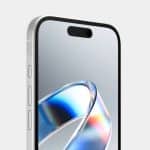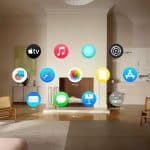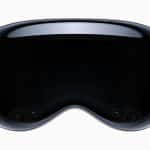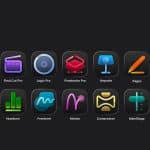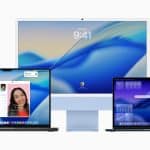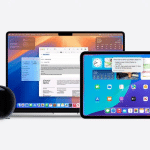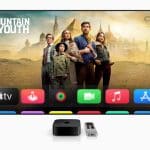You know that moment in class when someone flips open their tablet and starts gliding through slides like a digital wizard while you’re still hunting for a pen? It’s hard not to crave that magic.
According to essaywriters.com, more students are asking their writers to format essays for tablets to make editing and annotation easier. That shift says a lot about how central tablets have become on campus.

So, if you’re ready to invest, let’s compare your two top contenders before you hit that “Buy Now” button.
Source: https://www.pexels.com/photo/photo-of-man-and-woman-talking-to-each-other-4065133/
iPad vs Samsung Tablet: Design, Display, and Portability
When you line up an iPad and a Galaxy Tab on your desk, the visual difference is immediate. Apple leans on sleek aluminum and muted tones, while Samsung pops with vivid AMOLED panels and ultra-thin bezels. If you love studying outdoors or at cafés, iPads hold a brightness edge that keeps screens readable in harsh light.
Samsung’s build tends to be lighter, which makes slipping it into your backpack less of a shoulder workout. If commuting across campus is part of your daily grind, shaving off those grams can feel like a luxury.
Apple iPad vs Samsung Tablet: Performance and Speed
The performance crown in the tablet matchup almost always lands on Apple’s head. The iPad Air and iPad Pro run on Apple’s M-series chips, which rip through multitasking, video editing, and design apps without a hiccup.
Samsung tablets hold their own with Snapdragon processors, especially the S-series, but they can stutter under heavy workloads. That said, Samsung gives you expandable storage via microSD – a huge perk when you’re juggling lecture recordings, PDFs, and group project videos.
Note-Taking and Writing Experience
One of the biggest perks of using a tablet in class is swapping messy notebooks for sleek digital notes. Here, the iPad tablet vs Samsung tablet experience splits. Apple’s Pencil is pressure-sensitive and precise, while Samsung’s S Pen has lower latency and never needs charging.
If you spend hours sketching diagrams or annotating PDFs, the S Pen’s zero-charge design saves panic when you forget to plug it in. Apple still wins for third-party stylus accessories, which can make studying feel more fun and personal.
Accessory Ecosystems and Compatibility
When you consider how these devices play with the rest of your gear, the tablet Samsung vs iPad decision can become a deal-breaker.
iPads sync flawlessly with iPhones and MacBooks, thanks to iCloud and AirDrop. Samsung tablets slot neatly into Android and Windows ecosystems, and their DeX mode even lets them mimic a desktop.
If you already live in Apple’s world, iPadOS will feel effortless. If your devices are a mixed bag, Samsung is far more flexible.
Budgeting Reality Check
It’s time to talk about tablet price because that shiny tech has to coexist with your ramen budget. Apple’s entry-level iPad starts at $329 and climbs past $1,000 for the iPad Pro. Samsung’s tablets start at around $199, with premium models roughly matching iPad pricing.
Also, Apple accessories cost extra: the Apple Pencil ($129) and Magic Keyboard ($299) add up fast. Samsung often includes the S Pen for free, which can keep your wallet alive for at least one coffee a week.
| Model | Starting Price | Stylus Included | Max Storage | Best For |
|---|---|---|---|---|
| iPad (10th Gen) | $329 | No | 256 GB | Note-taking, browsing |
| iPad Pro (M2) | $999 | No | 2 TB | Design, video editing |
| Galaxy Tab S9 | $799 | Yes | 1 TB | Creative projects, multitasking |
| Galaxy Tab A9+ | $199 | No | 128 GB | Reading, casual use |
Tablet Pros and Cons for Students
We can’t skip this discussion.
iPad Pros:
- Super-fast performance
- Polished app experience
- Strong resale value
iPad Cons:
- No expandable storage
- High accessory costs
- Limited ports
Samsung Pros:
- S Pen often included
- Expandable storage
- Lower starting price
Samsung Cons:
- Slightly weaker performance
- Fewer tablet-optimized apps
- Occasional lag under heavy load
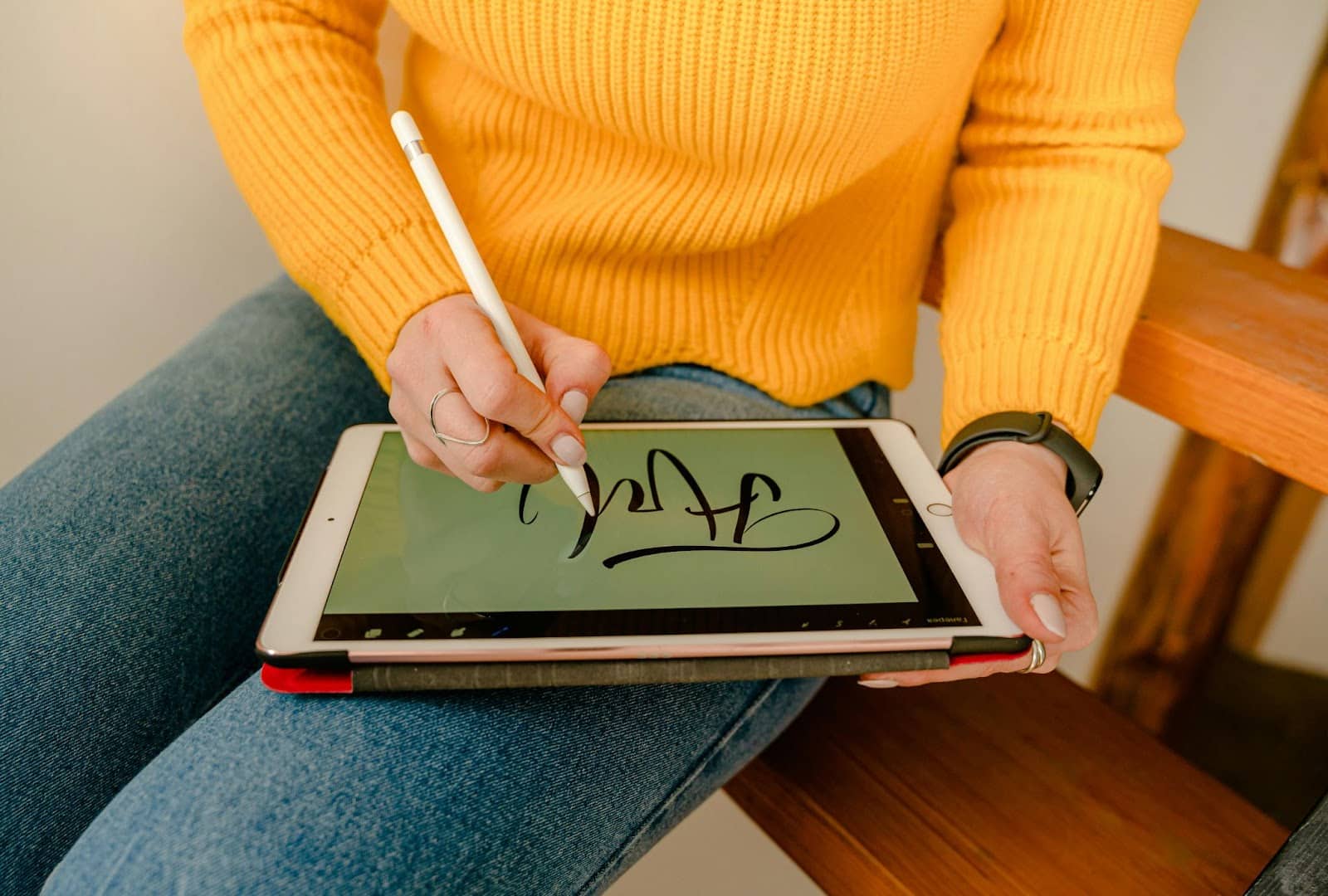
Multitasking Features and Flexibility
If you want to compare iPad vs Samsung tablet in terms of multitasking, Samsung’s DeX mode stands out. It lets you open multiple resizable windows like on a desktop. iPads now support Stage Manager, but it’s less flexible.
So, if you juggle lecture slides, research tabs, and video calls at once, Samsung will keep your digital desk less cluttered. If you’d rather keep things simple and stable, iPads offer a smoother, less fussy experience.
Tablet Differences That Impact Campus Life
There are subtle differences between tablets that shape real student life. iPadOS feels refined and predictable, while Android gives you more customization. With Samsung, you can sideload apps, split screens, and personalize widgets. iPads don’t allow as much tinkering, but they rarely crash and have better long-term software support.
Basically, pick Samsung if you love control, and Apple if you value stability.
Best Samsung Tablet vs iPad: Creatives’ Perspective
The debate is especially fiery among design majors. Samsung’s Galaxy Tab S9 has a jaw-dropping AMOLED screen and S Pen precision, while the iPad Pro’s M2 chip smashes through video editing and 3D modeling.
Michael Perkins, who leads the team of essay writers at EssayWriters, told me that design students in their community lean on iPad Pro, while content creators often go to Samsung to take advantage of DeX. His verdict? “Your workflow should choose your tablet, not the other way around.”
Real Student Feedback
Before you wrap this up, don’t forget to check iPad vs Samsung tablet reviews from other students. Most iPad owners rave about the snappy performance, flawless app optimization, and long-term reliability. Samsung users praise the included S Pen and lower starting cost, though some note certain Android apps feel stretched on big screens.
Neither camp is wrong; they’re just working with different priorities.
Let’s Wrap It Up
Choosing between an iPad and a Samsung tablet isn’t about picking the “better” device – it’s about picking the one that fits your life. iPads deliver speed, polish, and tight ecosystem integration. Samsung offers flexibility, value, and smart perks like the S Pen and DeX.
Your decision depends on how you study, what you create, and how much you can spend without living on instant noodles. Either way, you’re about to level up your college life, and your notes will finally look as smart as you are.


